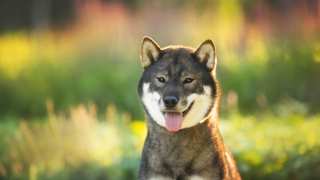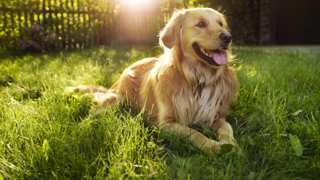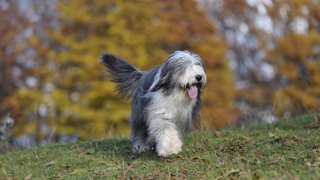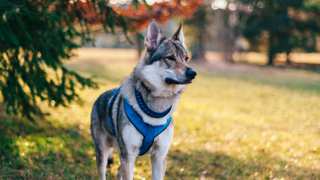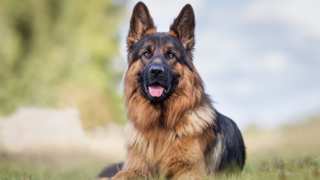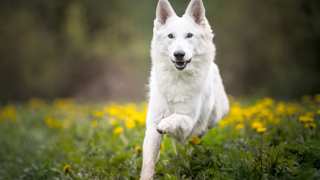Jindo dogs are active and athletic, so their exercise requirements are pretty extensive. These dogs are intelligent, task-oriented, and independent, so they'll need activities that stimulate them mentally as well as physically--but they're also incredible escape artists, so they'll need to be supervised at all times to keep them from running off. Jindo also make great jogging and bicycling companions.
The typical adult Jindo, depending on its age and overall activity level, will need at least 60 minutes of proper exercise each day, which you can accomplish with a couple of walks and a good period of play. You can start exercising a Jindo puppy at three months old by taking it on short (10-minute) leashed walks, then you can increase the walks' length and frequency as the puppy grows. And walking your Jindo pup is a good time to begin leash training, which teaches the young dog obedience: instead of allowing the puppy to lead or "tug" on the leash, make sure it walks beside or behind you. (Teaching the "Heel!" command helps with this.) In the puppy's mind, this establishes you as the leader, and will help the Jindo be more obedient as it matures.
A few precautions to keep in mind when exercising your Jindo: first, puppies younger than nine months old shouldn't participate in activities that include a lot of jumping, running, and/or navigating of stairs, as doing so can injure their still-developing joints and bones. And as previously stated, all Jindos will need to be leashed when in public. These dogs are extremely loyal to and protective of their people, and will be defensive and confrontational with strange people and animals; they also have very high prey drives, and will chase interesting-looking critters--squirrels, birds, cats, even other dogs--if given the chance. A leash will help you control your Jindo in these situations. Even when exercising in your own yard, the area will need to be securely fenced. Jindo are masters of escape, and will quickly run off unless closely supervised and contained. And finally: Jindo hate getting wet, so swimming is not a good activity--nor is exercising in the rain.
Safeguards aside, it's important to exercise your Jindo every single day. These dogs are active and task-oriented, so if they're bored or restless, they'll create their own "tasks"--barking, digging, and chewing up furniture (or at the worst, they'll escape to freedom). Consistent Jindo exercise will be great for both the dog's and your own peace of mind. A few exercise ideas:
- Walking/Jogging/Bicycling: Two 30-minute walks (or 20-minute jogs or bike rides) per day is a good target
- Fetch: These dogs will chase a ball or stick for hours
- Tug-of-War: Great indoor, rainy-day activity; use a rope or old towel
- Canine Sports: Jindo can excel at agility trials, flyball, and other competitions
- Hiking: Excellent bonding activity; bonus if you can find a remote area where the dog can be off-leash
When indoors, it's a good idea to give your Jindo access to one or more balls or toys that will allow the dog to burn excess energy. It's also recommended that you establish a regular exercise schedule for the dog, such a walks, jogs, or bike rides after breakfast and dinner and a play period in the afternoon.
